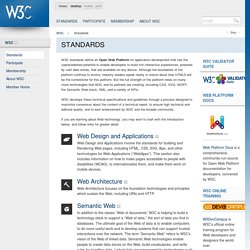

Hacking. 70 Things Every Computer Geek Should Know. The term ‘geek’, once used to label a circus freak, has morphed in meaning over the years. What was once an unusual profession transferred into a word indicating social awkwardness. As time has gone on, the word has yet again morphed to indicate a new type of individual: someone who is obsessive over one (or more) particular subjects, whether it be science, photography, electronics, computers, media, or any other field.
A geek is one who isn’t satisfied knowing only the surface facts, but instead has a visceral desire to learn everything possible about a particular subject. A techie geek is usually one who knows a little about everything, and is thus the person family and friends turn to whenever they have a question. If you’re that type of person and are looking for a few extra skills to pick up, or if you’re a newbie aiming to get a handhold on the honor that is geekhood, read on to find out what skills you need to know. Top 6 Underground Search Engines You Never Knew About. Advertisement I love Google, Bing and Yahoo just as much as the next Internet user, but sometimes you really want to dig down into a particular subject.

In order to do that, you really need access to those underground search engines that may not be quite as well known, but they dig much more deeply into specialized areas of the Internet than the general search engines are capable of. In many cases, these search engines are tapped into what is currently termed the “invisible web,” which is the information available on the Internet that standard search engines don’t have access to, because they are buried behind query forms or directory requests. The following 6 underground search engines that I chose are not porn sites, illegal piracy sites or anything else that could get you in trouble with the law, or with your significant other. Instead, I term the following as “underground search engines” for two reasons. Here is a search for “classical music,” with over 300 results.
Free Software. The Best Hacking Tutorial Sites - Learn Legal Hacking. Hack This Site! Top 10 Web hacking techniques of 2010 revealed. Network World - A Web hack that can endanger online banking transactions is ranked the No. 1 new Web hacking technique for 2010 in a top 10 list selected by a panel of experts and open voting.

Called the Padding Oracle Crypto Attack, the hack takes advantage of how Microsoft's Web framework ASP.NET protects AES encryption cookies. FROM THE SECURITY WORLD: Quirky moments at Black Hat DC 2011 If encryption data in the cookie has been changed, the way ASP.NET handles it results in the application leaking some information about how to decrypt the traffic. With enough repeated changes and leaked information, the hacker can deduce which possible bytes can be eliminated from the encryption key. That reduces the number of unknown bytes to a small enough number to be guessed.
The developers of the hack -- Juliano Rizzo and Thai Duong -- have developed a tool for executing the hack. Here are the rest of the top 10 Web hacks voted in the competition: 2. 3. 4. 5. 6. Free login to any site. Top 10 Harmless Geek Pranks. Top 10 Gaming Hacks and DIY Projects. Free online hacking game - Slave hack, hack computers, banks and servers.
Programming. Programming Forum. Cloud Computing.
Web Development. Php mySQL. Xampp. Online Web Tutorials. Standards. W3C standards define an Open Web Platform for application development that has the unprecedented potential to enable developers to build rich interactive experiences, powered by vast data stores, that are available on any device.

Although the boundaries of the platform continue to evolve, industry leaders speak nearly in unison about how HTML5 will be the cornerstone for this platform. But the full strength of the platform relies on many more technologies that W3C and its partners are creating, including CSS, SVG, WOFF, the Semantic Web stack, XML, and a variety of APIs. W3C develops these technical specifications and guidelines through a process designed to maximize consensus about the content of a technical report, to ensure high technical and editorial quality, and to earn endorsement by W3C and the broader community. If you are learning about Web technology, you may wish to start with the introduction below, and follow links for greater detail.